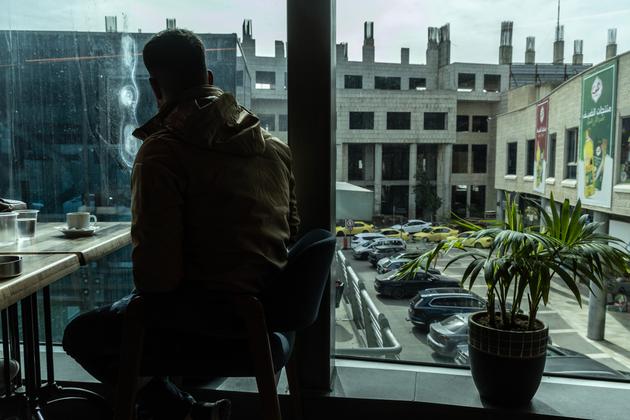From high above the militarized fence separating the West Bank suburbs of Ramallah from Israeli territory, you can see the buildings of the large Israeli prison of Ofer, located in occupied territory. On this day in mid-December, the entrance to the corridor leading to the detention center was deserted and guarded by soldiers. It bore little resemblance to the way it had been on Saturday, November 25.
On that day, the buses carrying the prisoners exchanged for Israeli hostages, after an agreement was reached between Israel and Hamas, were so crowded that it took them three hours to make the 20-minute journey to the center of Ramallah. In the back of one bus, Youssef (a pseudonym), 19, arrested in June 2021 for throwing stones at settlers, remained silent, unlike the other youngsters. “I was both happy and worried, in a state of shock,” he said, after hesitating to speak. The released prisoners, 71 women and 169 minors, were threatened with a return to prison if they spoke to the press or took part in demonstrations.

Originally from a small village near Ramallah, the young man has two older brothers who have also served time in prison. “On October 7, when we saw the Hamas attack on TV, we sang, we shouted ‘God is great!’ I thought this is the end of Israel. As the [prison] administration heard us, they took everything from the cells, except for a radio we’d hidden.”
An activist with the Popular Front for the Liberation of Palestine (PFLP) – a group born out of Arab nationalism and Marxism and classified as terrorist by the European Union – Youssef said that, like his fellow inmates, all PFLP members, he had never “supported religious groups like Hamas.” “Since October 7, we’ve reconsidered our position on Hamas, understanding that only they would support us if we went on hunger strike in prison. I hope the movement manages to survive because it has achieved results.”
Default choice
Faced with a Palestinian Authority that he deems to be “at Israel’s bidding,” Youssef believes that Hamas can have a political future in the West Bank. “I recognize the effectiveness of their armed wing, and their political wing has shown coherence between their actions and their ideas.” Nevertheless, he noted, Hamas’s relationship with religion remains a problem. “To succeed, it must let people have the life they want; we have Christians, secularists and Muslims here. If it doesn’t adapt, it will lose its credibility.”
Hamas is therefore, he said, a default choice. “If there was any other choice than Fatah and Hamas, I’d make it.” The increased freedom gained through Hamas does not automatically mean support for its approach of armed conflict. “Of the 10 prisoners in my cell, half want to continue the resistance,” he observed, “the other half want to stop fighting and have a better life. And I don’t think there will be a third Intifada, people are too scared.”
You have 60% of this article left to read. The rest is for subscribers only.
This post was originally published on this site be sure to check out more of their content.




